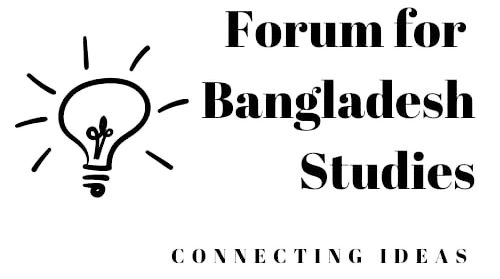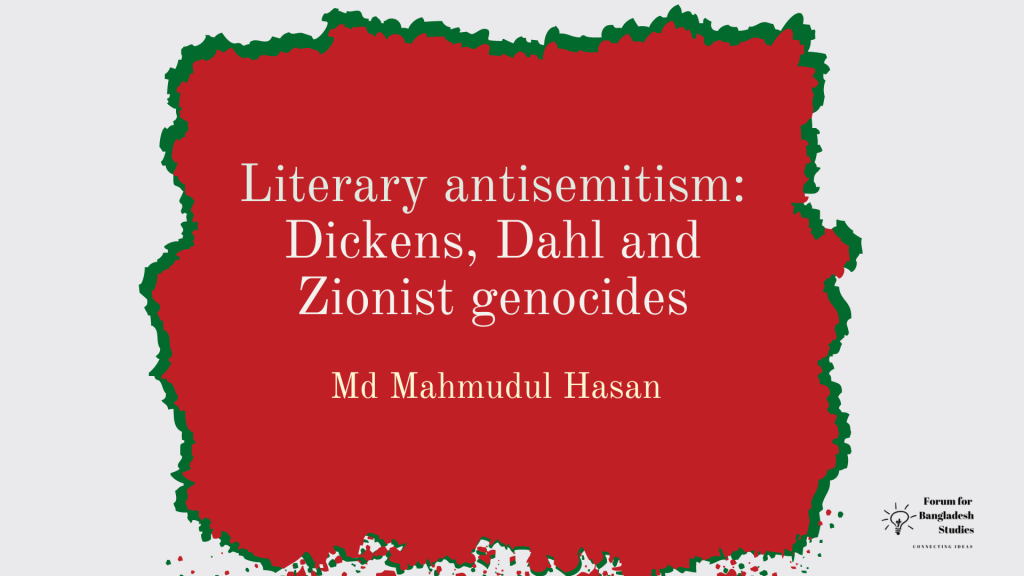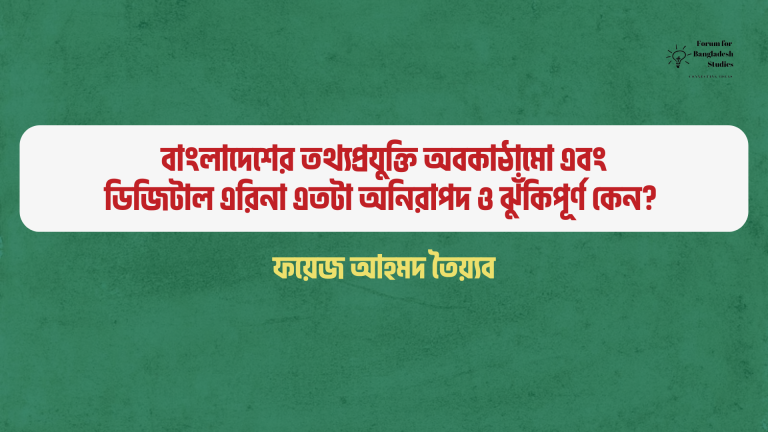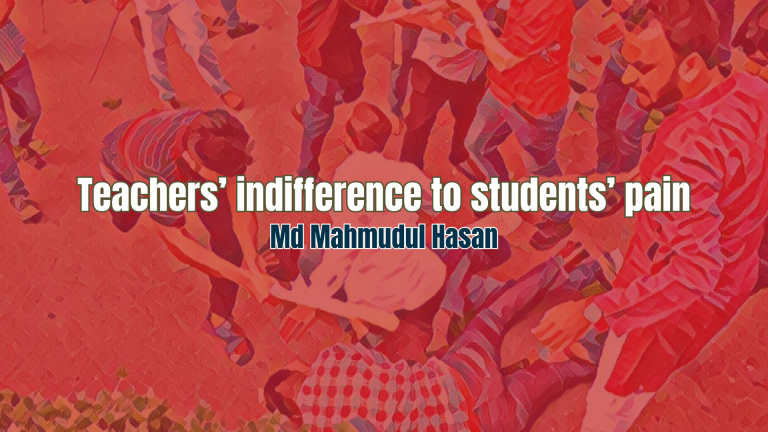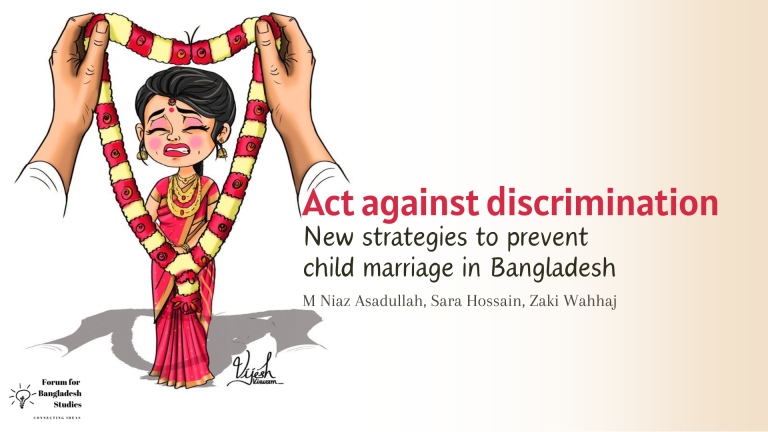IN A 1985 essay titled ‘What is literary antisemitism?’ the American-Israeli scholar of comparative literature Mark H Gelber argues that ‘literary antisemitism is at least as old as antisemitism itself’. In an earlier work, ‘To teach or not teach antisemitism’ (1976), EL Dachslager maintains that the image of the Jew ‘found in the pages of some of the world’s great’ literature is one ‘as cunning, crafty, conniving, consumed by cupiditas and hatred’.
Dachslager provides a list of Anglo-American writers whose writings contain antisemitic portrayals. They include Geoffrey Chaucer, Christopher Marlowe, William Shakespeare, Charles Dickens, Frank Norris, TS Eliot, and Ezra Pound. Dachslager makes special mention of Dickens for his questionable portrayal of the Jewish character Fagin in Oliver Twist (1839). In a 1990 research study titled ‘Dickens and the pastoral ethic’ conducted at the University of Rhode Island in the US, David Wilkes argues, ‘Without question, Fagin [in Oliver Twist] is a defiler of souls whose worldly desire for power and wealth causes him to abuse his flock’.
While presenting Fagin as an unsympathetic character, Dickens unambiguously reveals the religious identity of the villain by identifying him as a Jew. In the novel, the name Fagin and the phrase ‘the Jew’ — that refers to him — are mentioned over 300 times each. Chiefly because of this unflattering portrait of Fagin in Oliver Twist, Dickens is often accused of antisemitism.
The American cartoonist and writer, Will Eisner (1917-2005) is considered a pioneer of the graphic novel format. His graphic novel Fagin the Jew (2003) was inspired by Dickens’ Oliver Twist. The two works are sometimes paired because of the Jewish question in both, even though the former is not an adaptation of the latter in the strict sense of the term. Fagin the Jew is actually ‘an imagined autobiography of Fagin, narrated by the thief to Charles Dickens as he sits in his cell awaiting his execution by hanging’ (Jeremy Dauber, ‘Comic books, tragic stories: Will Eisner’s American Jewish history,’ 2006).
In an essay titled ‘The Other Woman — Eliza Davis and Charles Dickens’ (2015), Murray Baumgarten mentions that, in 1854, the London-based weekly, The Jewish Chronicle (founded in 1841) published an essay that asked ‘why Jews should be excluded from the sympathizing heart’ of Dickens, the ‘powerful friend of the oppressed’. Accordingly, in ‘Antisemitism and social critique in Dickens’s Oliver Twist’ (2005), Susan Meyer believes that ‘the portrayal of the Jewish underclass villain, Fagin, has perturbed some readers almost since the novel’s first publication’.
Dickens’ contemporary, Eliza Davis (1817–1903) is known for her correspondence with the novelist. In 1863, she wrote:
It has been said that Charles Dickens, the large hearted, whose works plead so eloquently and so nobly for the oppressed of his country, and who may justly claim credit, as the fruits of his labour, the many changes for the amelioration of the condition [of the] poor now at work, has encouraged a vile prejudice against the despised Hebrew. (quoted in Meyer)
Dickens’ response to her reads as follows:
Fagin, in Oliver Twist, is a Jew, because it unfortunately was true of the time to which the story refers, that that class of criminal almost invariably was a Jew. But surely no sensible man or woman of your persuasion can fail to observe — firstly — that all the rest of the wicked dramatis personae are Christians; and, secondly, that he is called ‘the Jew,’ not because of his religion, but because of his race…. I have no feeling towards the Jewish people but a friendly one. (quoted in JM Morse, ‘Prejudice and literature,’ 1976)
Harry Stone argues in ‘Dickens and the Jews’ (1959) that ‘this anti-Semitism was typical of his age,’ as ‘Oliver Twist grew out of an era and a literary tradition which was predominantly anti-Semitic’. Stone adds: ‘[I]n his lifetime [Dickens] was charged with anti-Semitism, and he finally acknowledged the justice of the charges sufficiently to take active measures to counteract them’.
It is perhaps no coincidence that, following his correspondence with Eliza Davis in 1863, Dickens wrote his last completed novel Our Mutual Friend (1865). In this novel, he apparently seeks to assuage the displeasure at his portrayal of Fagin in Oliver Twist. As Morse argues, in Our Mutual Friend, ‘Dickens tried to make amends for Oliver Twist by portraying a good Jew, the gentle Mr Riah’.
While there are critics who characterise Dickens as an antisemite, there are others who defend his portrayal of the most villainous character in Oliver Twist as a Jew. For example, Susan Meyer defends Dickens, saying:
Dickens thus uses the Jew, I will contend, as a corrective figure for the instruction and improvement of English Christians, guiding them, by a skillful employment of the rhetoric of antisemitism, towards the practice of what he represents as a true Christianity, characterised by mercy and benevolence toward the poor.
What Meyer perhaps seeks to argue is that, Dickens depicts evil and loathsomeness in the character of a Jew to present in front of his Christian readers two sets of values — one that they can anticipate to find among a group of people who were considered detestable at that time and the other they should emulate. In other words, Dickens portrays Fagin in order to encourage his readers to distance themselves from social vices and economic exploitation that were conventionally marked as Jewish. Others justify Dickens’ presentation of Fagin as a hideous Jew by saying that ‘Dickens created Fagin because he needed a recognizable villain; that Fagin happened to be a Jewish villain is, at best, seen as incidental’.
Such justifications for the portrayal of a Jew in Dickens’ novel may not convince everyone. Nor am I presenting myself — in this essay — as an apologist for his indefensible views. It is perhaps safe to say that not all his creations have garnered universal acceptance. But this should not invalidate Dickens’ commendable concern for the poor and the downtrodden in Victorian England, as reflected in Oliver Twist and his other works.
The celebrated children’s author Roald Dahl (1916-1990) — whose ‘books have sold more than 300 million copies worldwide’ till May 2023, according to the BBC — is among the late twentieth-century writers who have been accused of antisemitism. Dahl’s antisemitism was blatant and manifest and difficult to overlook. In a 1983 interview published in the UK’s New Statesman, he is reported to have said: ‘There is a trait in the Jewish character that does provoke animosity, maybe it’s a kind of lack of generosity towards non-Jews…. Even a stinker like Hitler didn’t just pick on them for no reason.’
While Dahl’s views about the Jews in general are abhorrent, it is perhaps worth mentioning here what he said about what led him to hold them. Years after his interview with the New Statesman and months before his death in 1990, in an article published in Independent, Dahl stated that his antisemitism started in 1982 when Israel committed a genocide in Lebanon and killed about 22,000 civilians.
For many decades, Israel has been committing small genocides and big genocides — and small massacres and big massacres — against Palestinians and others in the region. The current genocide that started in early October 2023 and still continues is perhaps the cruellest and most revolting as well as most widely reported, thanks to the availability of alternative media. Israelis who are committing this genocide identify themselves as Jews. Therefore, like Israel’s genocide in Lebanon in 1982, the current one in Gaza may stir up anti-Jewish sentiment.
Unfortunately, the charge of antisemitism is unmistakably used to justify the unjustifiable, to disarm critics of Zionism, and to immunise the state of Israel against any criticism of its genocidal policies. It is simply wrong to equate Zionism with Judaism or to conflate Israel with the global Jewish community. There are innumerable conscientious Jews in Israel and other countries who are opposed to Israel’s crimes of apartheid and mass murder. Hating them for what Israel has been perpetrating is unfair and unjust to say the least. The genocidal actions of Israel in their name already weigh heavily on their consciences. Blaming them for Israel’s actions will only add another layer of pain for them.
It can be said with some degree of certainty that by committing genocides against indigenous Palestinians in the name of a ‘Jewish’ state and by equating an anti-genocide stance with antisemitism, Israel has been doing a great disservice to the world Jewish community. The gruesome brutalities of Israeli forces in Gaza and West Bank are likely to incite anti-Jewish feelings, especially among those who are prone to prejudice and unable to differentiate between Judaism as a religion and Israel as a state.
The rest of us must say in unison: No to war! No to genocide! No to antisemitism!
Originally Published: New Age, 15 May, 2024
